Two-minute review
ZTE-owned Nubia might not be the best-known tech manufacturer in the world, but when you do hear about one of its products it tends to be something unusual enough to make you take an interest: the Nubia Z20 smartphone had two screens, one on either side of its body; the Nubia Red Magic 5G was the first phone with a 144Hz display; and the Nubia Alpha was a smartwatch with a curved display, a camera and gesture controls.
The Nubia Watch is something of a successor to the Alpha – the company isn’t marketing it as such, but a quick glance will tell you the two devices look pretty similar. They both have long displays that curve around your wrist, chunky designs, and run the same software.
Jump to...
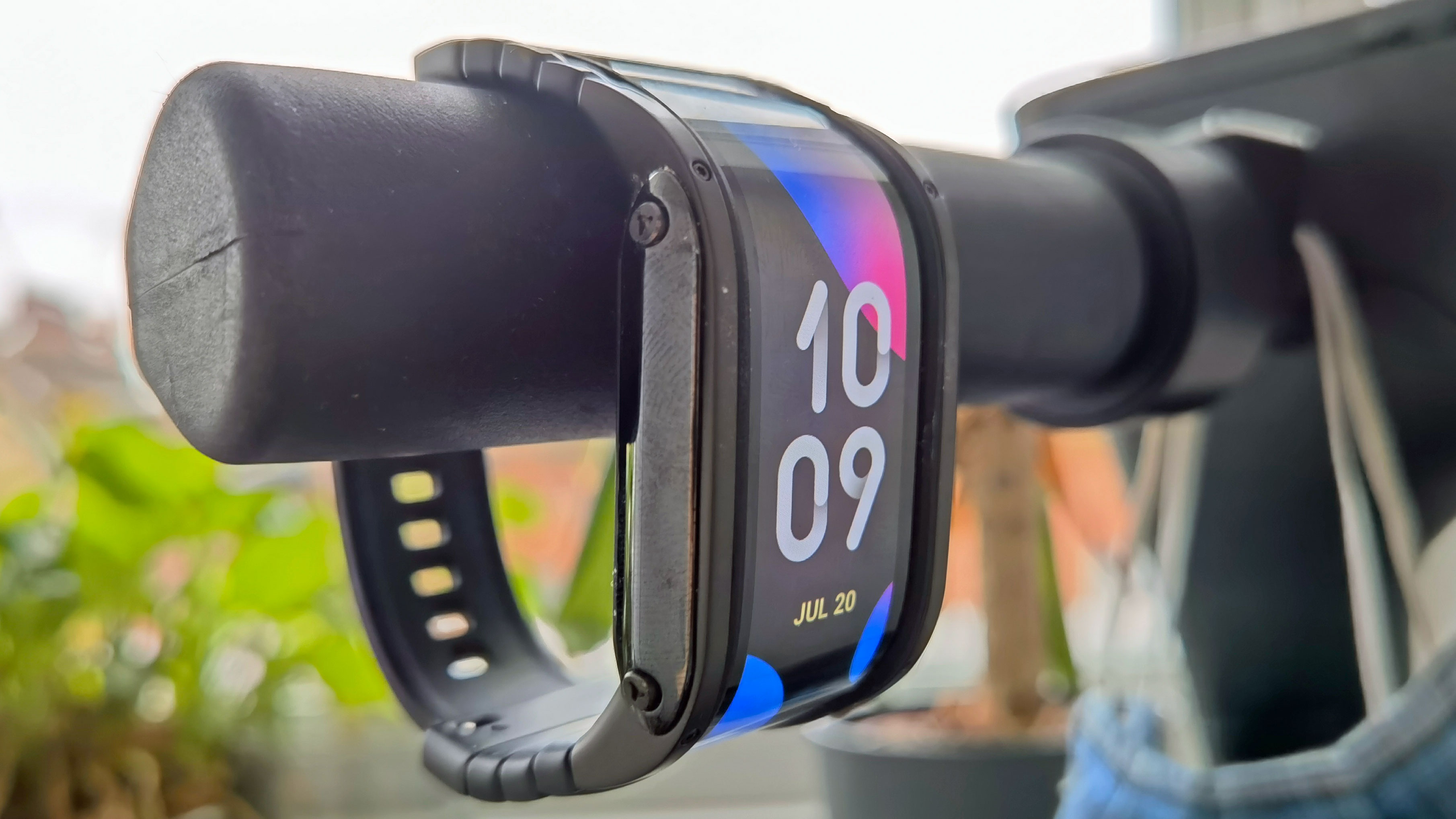
Price and availability
Design and display
Performance and software
Fitness
Battery life
Should you buy it?
More specifically, the Nubia Watch feels like a refined version of the Alpha. Gone is the camera, which protruded out from the body quite a bit – and we imagine few will miss that low-res, hard-to-use snapper. The gesture controls are gone too, which means another feature you’ll likely end up ignoring, and another sizable sensor, are gone. The smartwatch’s clasp has had a redesign too, to make it more comfortable to wear while you're working out and sleeping.
The most important change is that the myriad bugs that plagued the Nubia Alpha are all gone – we barely encountered any during our time with the Watch, which was a breath of fresh air compared to our experience with its predecessor.
So the Nubia Watch brings a few noticeable improvements over the Alpha model, which make it a more tempting purchase. It hasn’t seen a total overhaul, however, and lots of the issues we had with the original are still here.
There aren’t very many lifestyle or communication apps – while you can text and call when paired with a phone, and receive notifications to the device, you can’t reply to or even read many of the notifications you get. There are four different workout modes, but while each is fine for tracking your fitness, you can’t access historic exercise data on the watch or its tie-in app, and we found the distance measured on runs was wildly incorrect.
This is certainly not a lightweight device either – its screen wraps much of the way around your wrist, and sticks out a fair bit from your arm too, so it’s as sleeve-catching as it is eye-catching.
So the Nubia Watch is more of a party piece or conversation-starter than a watch you’ll find useful throughout your waking day, which would be fine if the watch wasn’t burdened by a pretty high price. But it definitely has a particular audience: one that wants a fashion piece that can also let them text and count their steps, and if that sounds like you, this is a device worth considering.
Nubia Watch price and availability
- Launched on Kickstarter
- First available from October 2020
- Costs $399
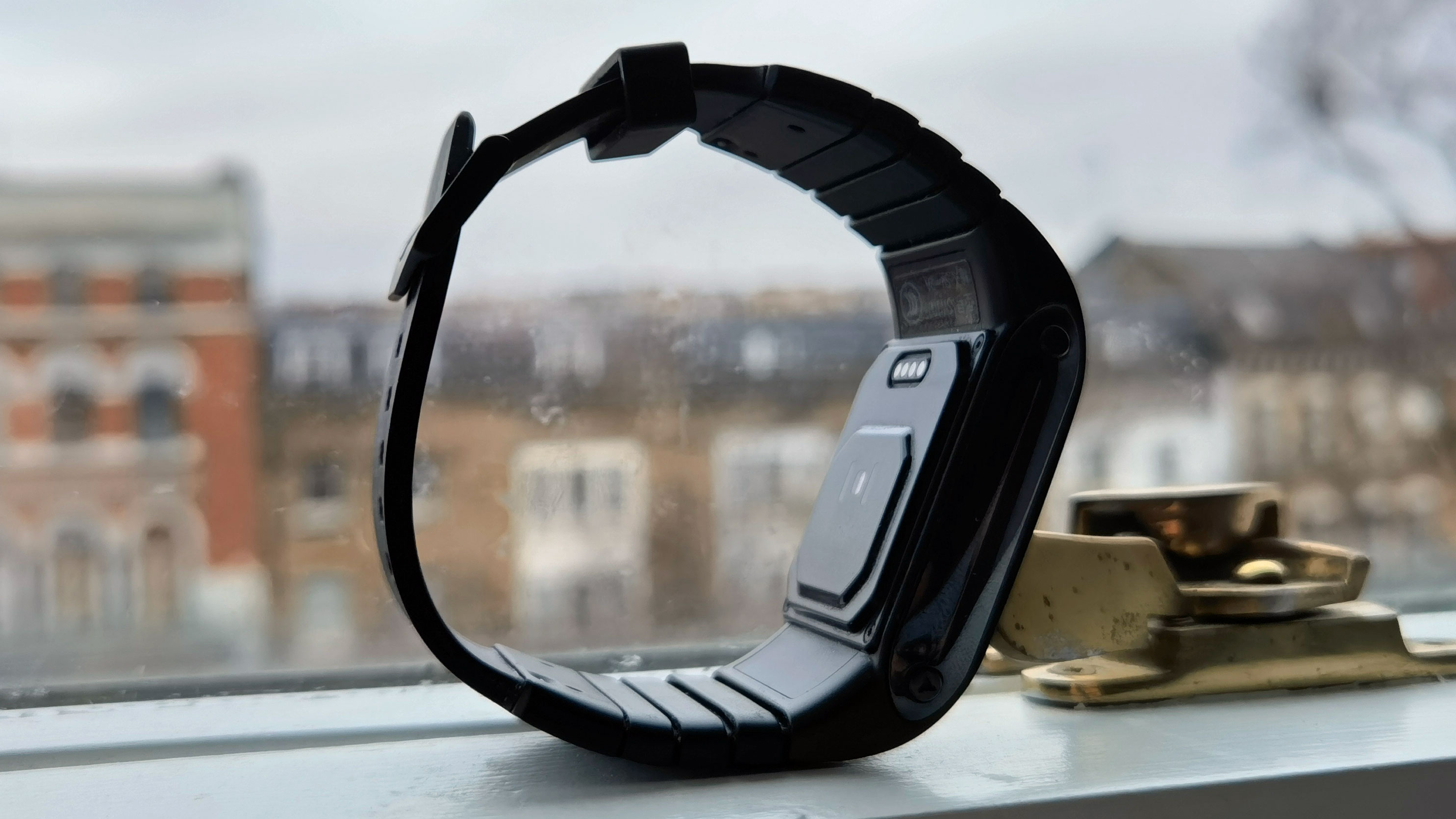
The Nubia Watch was released via a crowdfunding campaign on Kickstarter, a method of launching tech we’ve seen used before, although rarely by established companies like Nubia.
The campaign was started in mid-August 2020, and the campaign rocketed past its pledge goal almost immediately, with units shipping from October..
The Nubia Watch price is $399 (roughly £300 / AU$550 – the website lists the price in US dollars no matter where you are), although pre-ordering it as part of the Kickstarter campaign gets you a discount, with the amount depending on how early you ordered it.
That’s a pretty high price for a smartwatch, especially one with a relative lack of features (as we’ll get into) – it’s the same as the starting price for the Apple Watch 5, and that’s a premium watch from a huge brand.
We’d guess the curved display tech isn’t cheap to make, and the Nubia Watch is at least cheaper than the Nubia Alpha, which costs $449 (roughly £340 / AU$640), so if you absolutely want a curved smartwatch this is the cheapest.
Design and display
- Novel curved-screen design
- 4-inch AMOLED screen
- Fairly large
We’ve already mentioned that the Nubia Watch has an interesting display. It’s a 4.01-inch AMOLED panel with a 960 x 192 resolution. The display shows colors well, and while you won’t exactly be watching Netflix on your wrist, it makes colorful menus look even more vibrant.
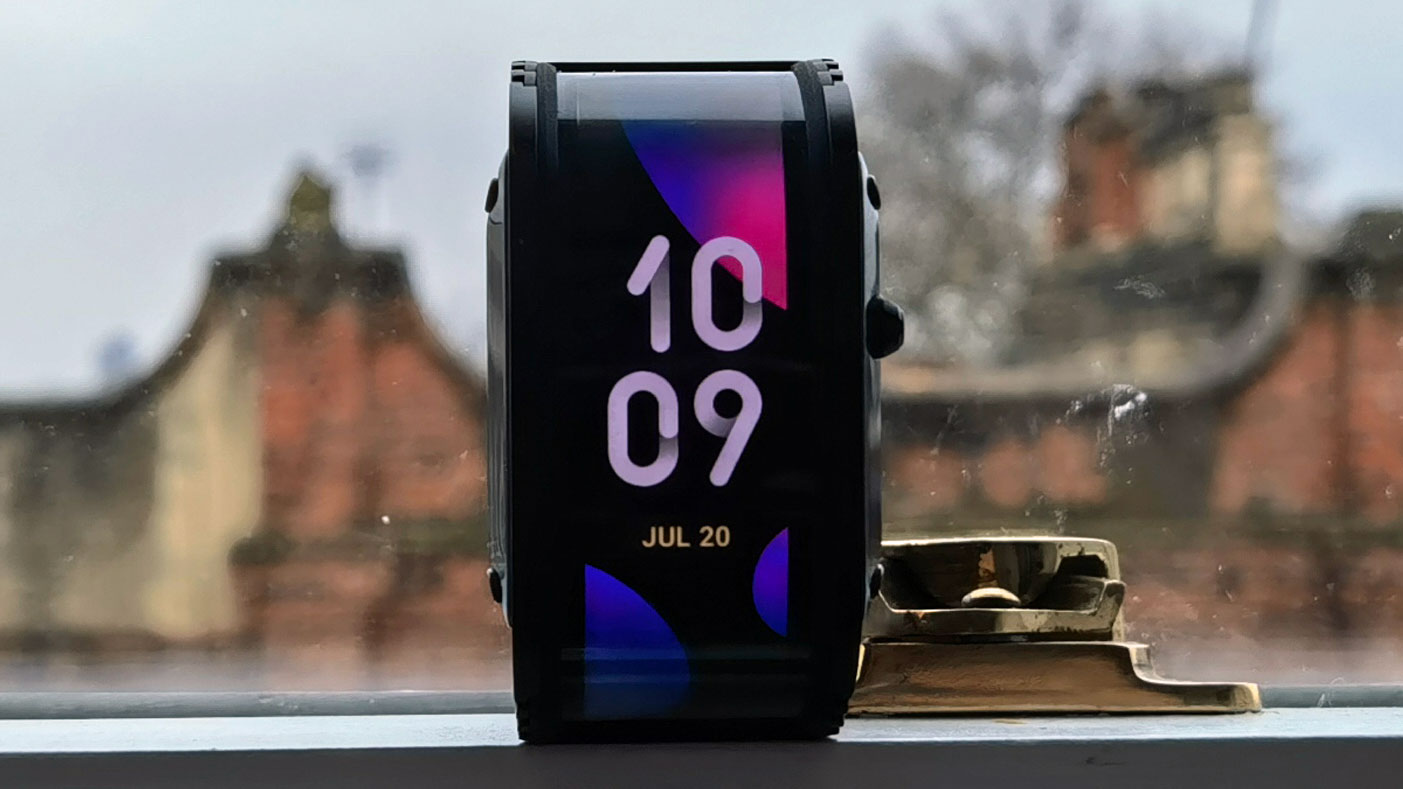
The long, curved display can initially seem fun, but unnecessary; however, there are some tasks which benefit from the extended screen real estate. You can easily see a long notifications list without scrolling, for example, and it’s also handy for reading lengthy texts. Not all apps or functions utilize the long screen, but enough do that we grew to appreciate its presence.
There are two bezels around this display: a physical one, with very faint numerical markings on it, which is raised above the screen slightly, and another that’s flush with the screen and creates a black border between the viewable display and the edge bezel.
This flexible display covers a rather thick body, one that sticks out 0.55 inches from the wrist and weighs 98g. That’s quite a bit thicker and heavier than your average smartwatch – don’t buy this if you’re looking for a dainty device.
The body – for clarity we’re using this term to describe the long section the screen is housed in, though the distinction is less clear-cut than on your standard smartwatch – has a single crown, which you can press to wake the Nubia Watch and also to jump to the main menu from a different one. There are visible screws jutting out of the body – we’re not sure if this is part of some mechanical-themed design aesthetic or just an unavoidable design quirk.
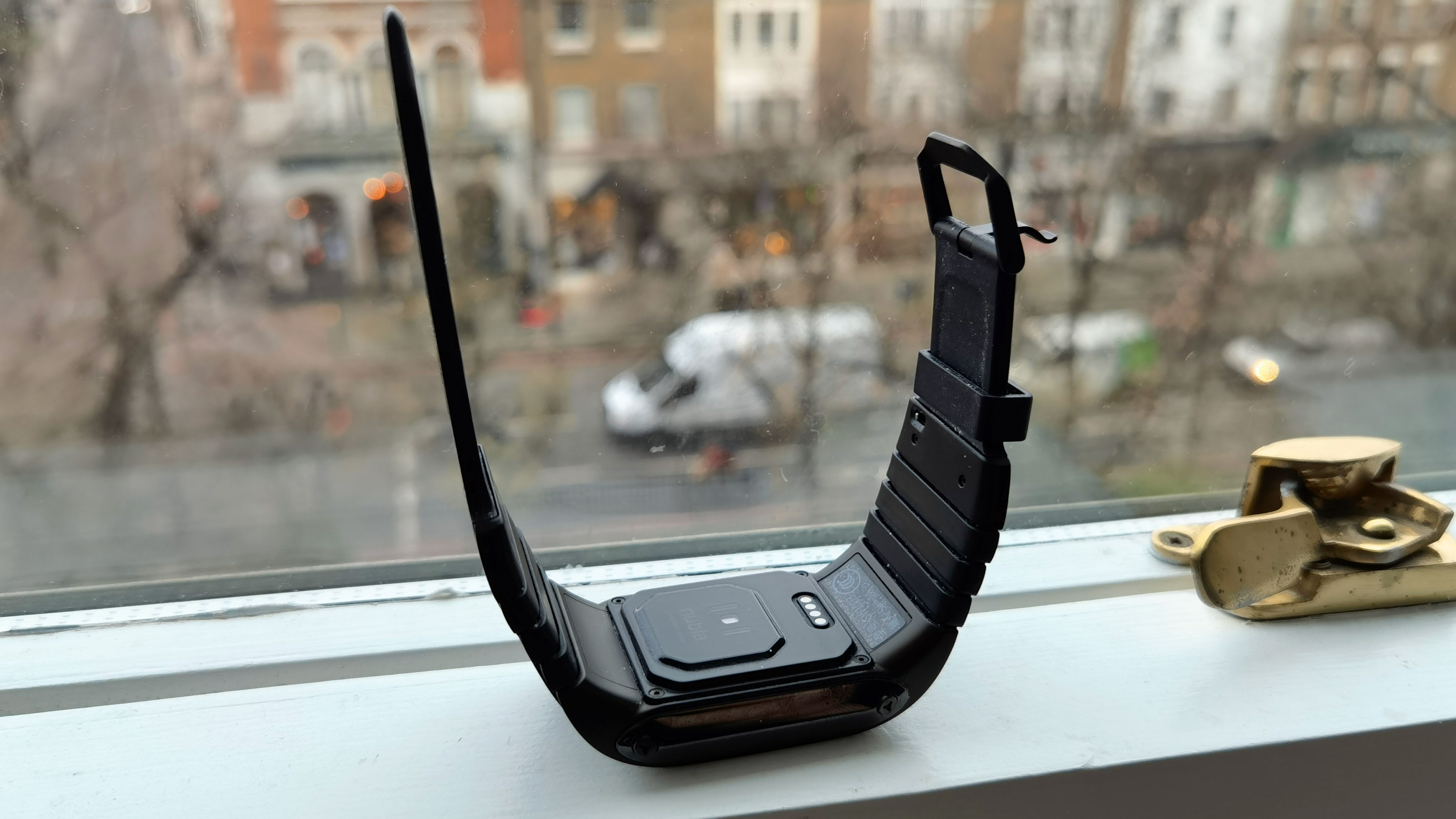
While this smartwatch might seem like it’s all a single component, as with the Alpha you can actually remove the straps if you so wish. In the box you’ll find a longer strap than the one which comes fitted, which people with larger wrists might appreciate, although changing straps can be quite a fiddly process, as the levers to that you need to flick in order to detach the strap from the body are rather small.
The silicone strap that’s attached fits pretty comfortably on the wrist, and there are enough holes in it to suit a variety of wrist sizes.
We had issues when using the watch while wearing shirts with tight sleeves, as it was hard to get the sleeves over the watch. We didn’t find the watch uncomfortable to wear in general, but it’s harder to ignore when you are wearing it compared to other watches, as it’s thicker and heavier than most. If you’re looking for a lightweight device to track your steps, that you can forget the rest of the time, this watch isn’t it.
Performance and software
- You can read, but not respond to, notifications
- A range of standard smartwatch features
- Music handling requires songs downloaded
The Nubia Watch uses Nubia’s own smartwatch software, and it’s basically the same as it was in the Nubia Alpha, but without the numerous bugs that made that device a pain to use.
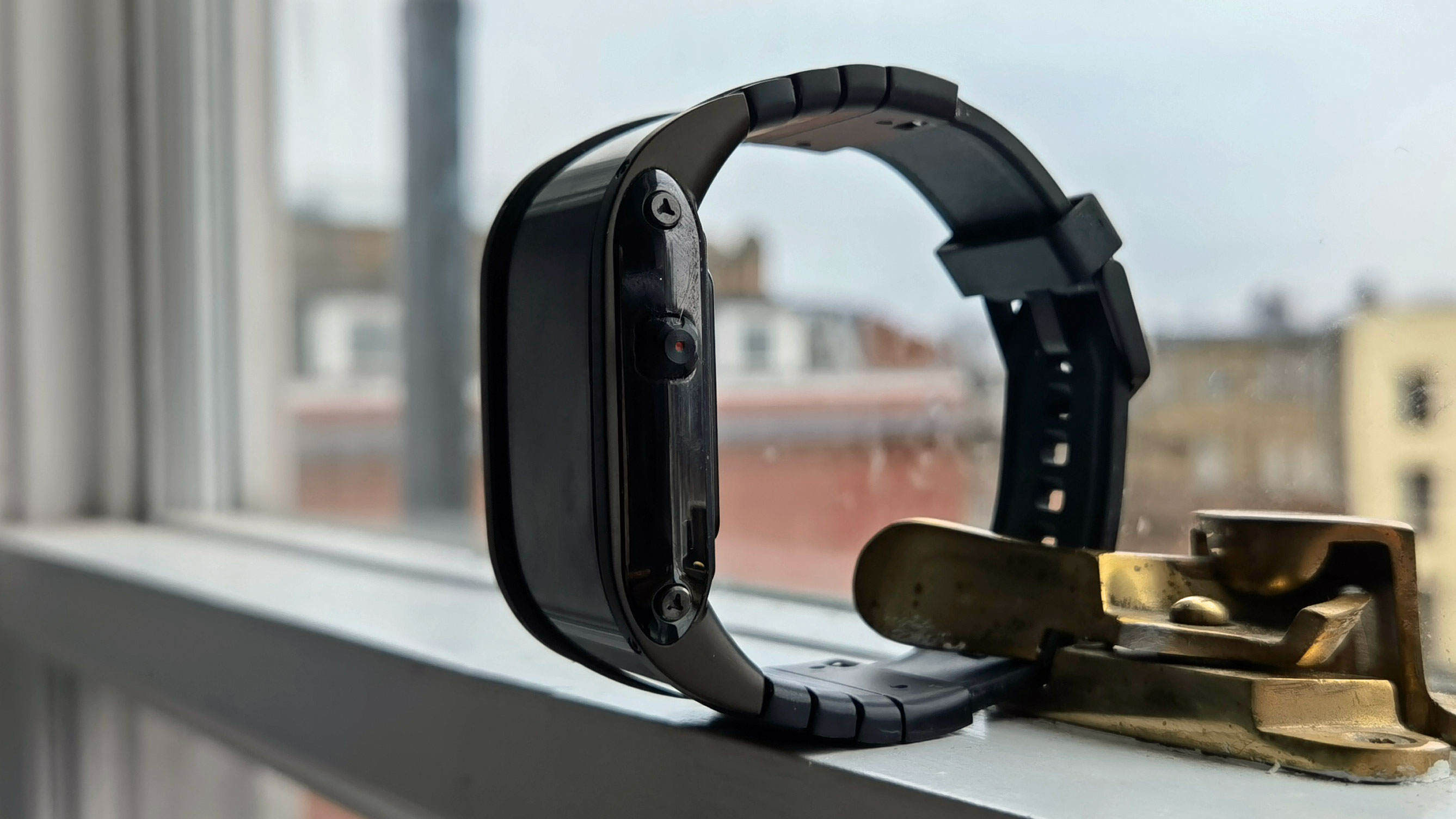
The main watch face shows you the time, your steps, and other bits of information depending on which face you go for. You swipe up on the main face for notifications, and swipe down for a settings panel, which includes options for things like changing the brightness and toggling the power-saving mode.
You swipe left or right on the watch face to bring up the apps list which, as on the Alpha, is pretty limited. There are some fitness tracking modes, which we’ll get on to, and a Health option that enables you to check out your workouts and general fitness for the day, and which includes a heart rate testing mode.
There’s calling and texting, both can be initiated from the watch, as long as it’s paired to your phone; Weather, the function of which needs no explaining; Clock, which lets you set alarms and timers;, Schedule, which pulls through your phone’s calendar; SearchPhone, which causes your phone to buzz so you can find it (and was really useful when it worked); plus a compass mode, Alipay (a Chinese-based payment system), and a music-handling mode.
You need to manually download the songs onto the Nubia Watch to play them via the app, so fans of streaming services won’t be able to use it. In an era where music streaming is widespread we’re not sure how useful this mode is, and we never used it.
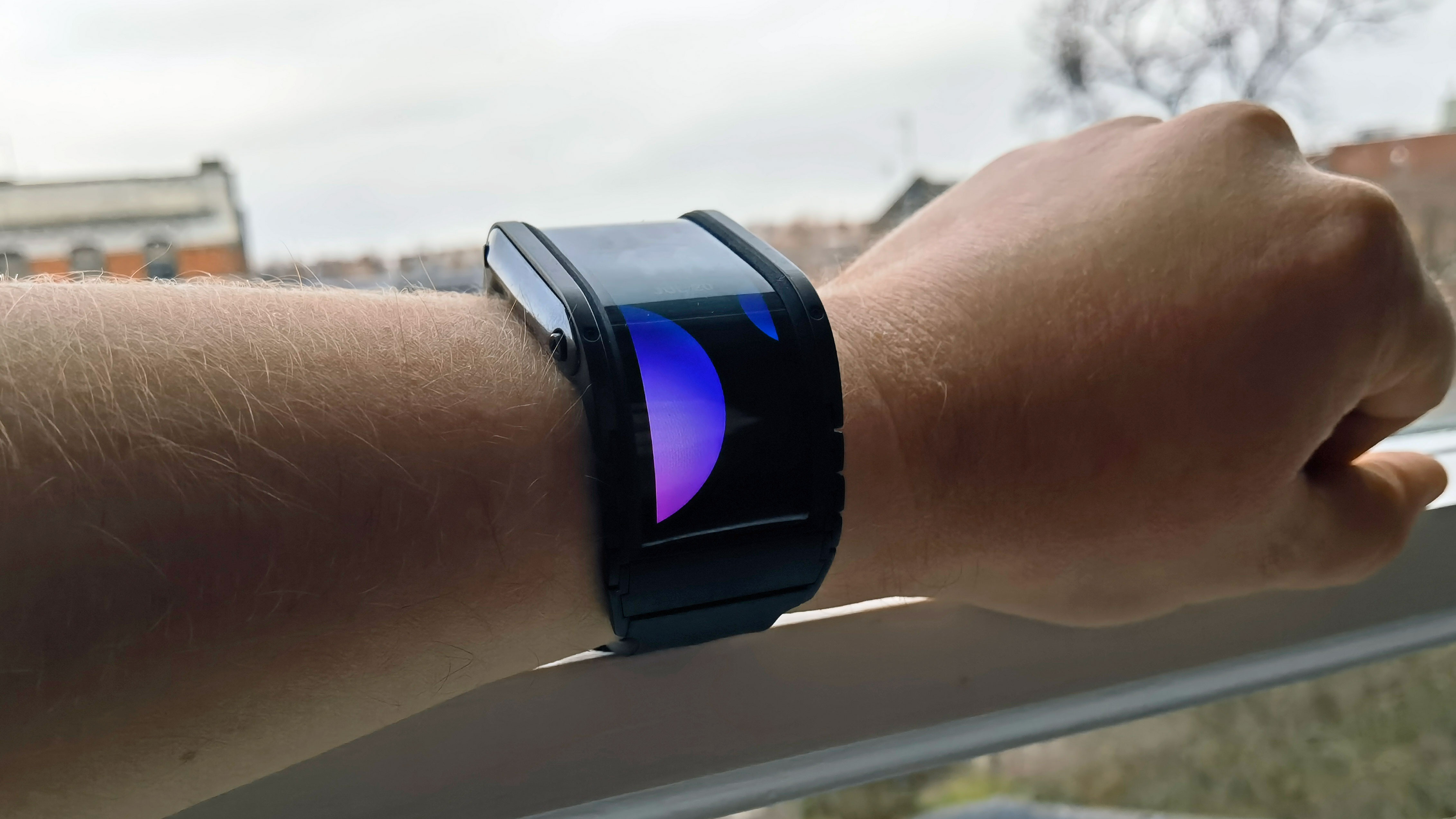
Finally, there’s Barrage mode, which was called Marquee on the Alpha, which lets you display ambient patterns and scrolling words across the watch face. It’s a fun mode to play around with, but it won’t revolutionize your smartwatch experience – we also had trouble getting the text, which you have to type in the Nubia Wear app, to sync with the watch.
You might notice from this list a lack of communication modes beyond texting and calling: there’s no WhatsApp, Facebook, Instagram, emailing or anything like that, and while notifications are pulled through, the feature isn’t always useful. You can still read notifications from these apps when they’re on your phone, but you can’t reply, or write new messages to people. For example, you can read, but not reply to, WhatsApp messages – unless there are multiple messages, from the same or different chats, and then you’re simply told the number of messages and the number of chats these messages are in.
Nubia has suggested to us that it might put out a version of the watch with apps such as WhatsApp on it, and if that’s the case it would really improve the experience of using a Nubia device – maybe enough to bump the review score up by half a star. As it stands, though, no such function exists.
Fitness
- Four fitness tracking modes
- Distance measured was inaccurate
- Can't view historic data
The Nubia Watch has four fitness tracking modes: Outdoor Running, Indoor Running, Outdoor Walking, and Free Workout. Each tracks distance, time and calories burnt – the former is done via your phone’s GPS connection.
That’s not a huge range of workout modes or stats tracked, although for an average smartwatch user who just runs now and again, or wants to be a bit more active, it may be enough. In our testing most of the metrics seemed accurate except distance – after our 6.1km running course (that we use as a standard test of distance accuracy) the watch thought we’d gone 3.5k, suggesting it has errors in how it computes distance. A few hundred meters discrepancy would be understandable, but not multiple kilometers.
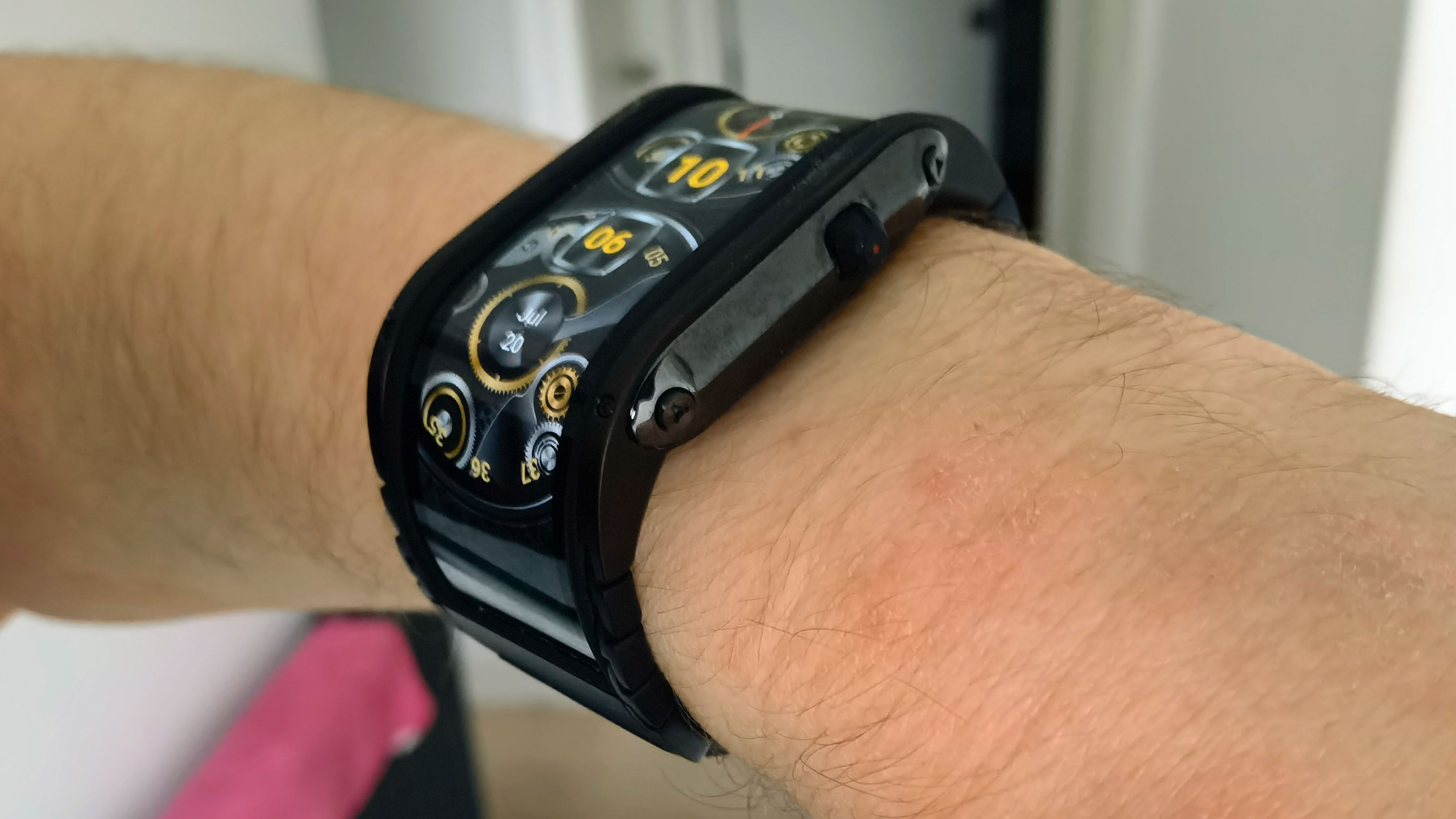
General step tracking works well though – gone are the Alpha’s bugs which, among other things, saw it deduct 50,000 steps for no obvious reason.
Another big issue with fitness tracking on the Nubia Watch is one we’ve already mentioned, in that there’s no way of viewing historic data, either on the watch or on the Nubia Wear smartphone app. The most the apps do is tell you your workouts for the day, but there’s no option on the watch to cycle through previous days, and while there is a button on the phone app which seems like it should let you check previous days, it doesn’t actually work, although it’s possible Nubia could add this feature via a firmware update.
So maybe the ability to view the run you did the day before is coming, but the Alpha didn’t have historic data either, so this feature really should have been introduced by now. And this doesn’t just affect workouts – you can’t see your previous day’s step count either.
Battery life
- Nubia states 7-day battery life
- We found 2-4 day battery life
- Charging time varies
Nubia estimates that its smartwatch will last seven days between charges – this seems like a rather optimistic stat to us, but we weren’t disappointed by the Nubia Watch’s battery life.
The battery life seems to vary quite a bit depending on whether you’re tracking workouts and taking calls, or just using the watch to check the time now and then. When we were using it most intensively it seemed to last us at least two days, and this stretched upwards to four or five days with light use.
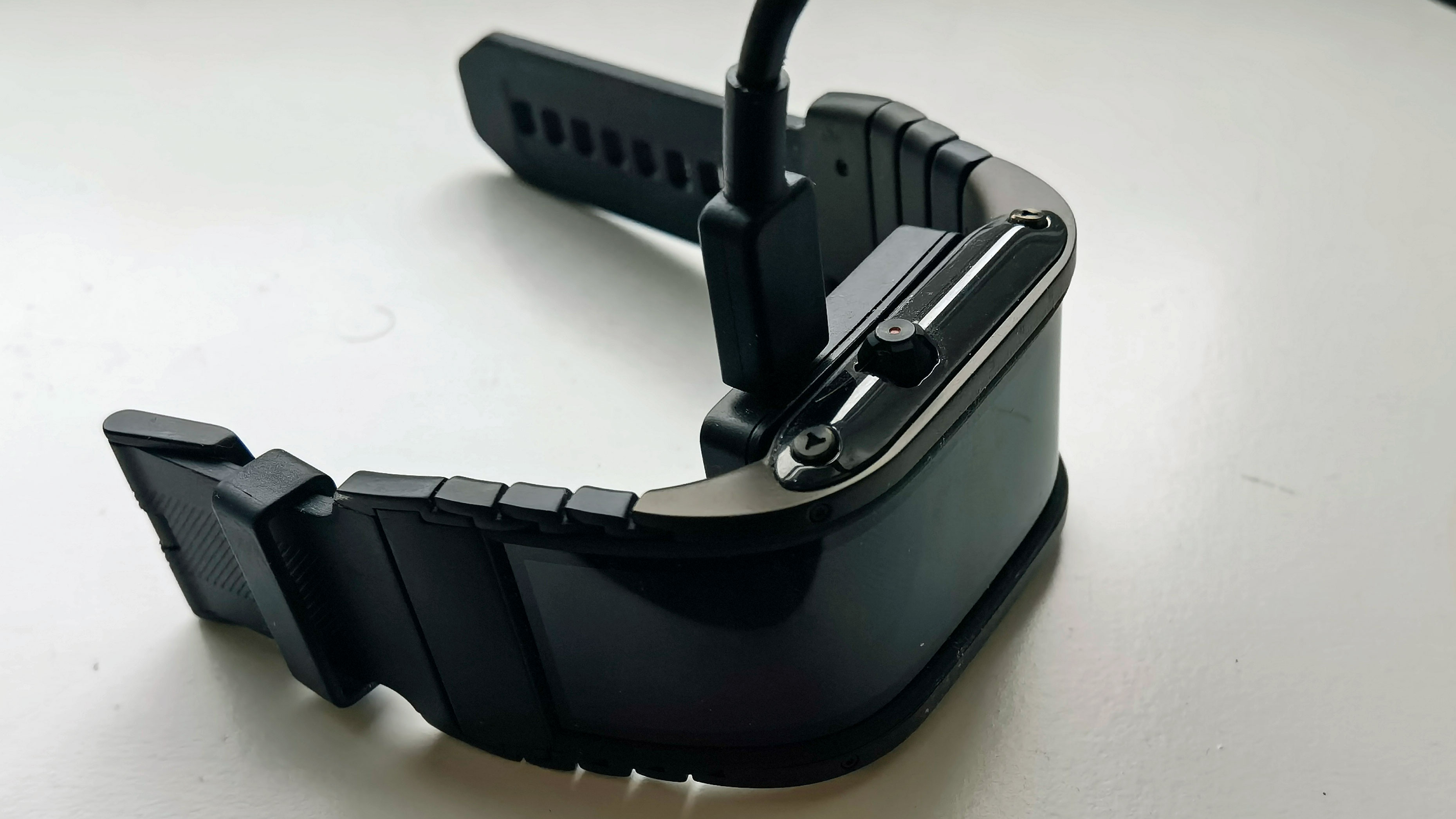
It’s hard to give a reliable estimate for ‘typical’ battery life due to these widely varying results. Regardless, compared to your average Wear OS device or Apple Watch the battery life seems impressive,, as those rival devices tend to need recharging daily – and they don’t have large 4-inch screens either.
Charging is done via a proprietary charging panel that attaches to the back of the watch’s body via magnets, and can be plugged into any standard USB port like the one on your computer. Nubia estimates it takes 85 minutes to power up the device to full, but we’re not sure most people will see that kind of speed.
When we plugged the charger into our laptop, it seemed to take several hours to charge the Nubia Watch to full – in fact, we often found it easier to charge it in frequent bursts, to save us having to wait that long for it to power up.
Sure, this is because laptop USB ports output less power than a USB wall adapter, and if you used one of those, you’d get faster charging. But given that solution isn’t very convenient, and it’s much easier to charge USB devices via a computer or laptop, we’d imagine most people will get similar speeds to us.
Should I buy the Nubia Watch?

Buy it if...
You want a bold-looking smartwatch
The Nubia Watch certainly stands out compared to most other smartwatches, and if you want to turn heads at parties, it could be worth your money.
You don’t need in-depth fitness modes
While the Nubia Watch only has four fitness modes, and only tracks a few metrics for them, this will suit those who just want to do simple workouts and see basic information.
You want a longer-lasting battery
Lasting several days of use between charges, the Nubia Watch easily outlasts lots of its competition, even if it doesn’t hold a candle to the longest-lasting smartwatches.
Don't buy it if...
You want to reply to notifications
The Nubia Watch won’t let you reply to messages from most apps, or even read messages from some, so it’s not the best smartwatch if you’re looking for a wrist-mounted admin machine.
You want an affordable watch
The Nubia Watch is certainly one of the pricier smartwatches we’ve seen – enough to put off buyers who aren’t looking to spend a premium.
You’re a fitness buff
Sure, the Nubia Watch is good for basic fitness information, but that’s it – if you want to track activities like cycling or swimming, see in-depth workout analysis, or even view previous workouts, it’s not the watch for you.
Review first published December 2020
via Tech Trade
Comments
Post a Comment